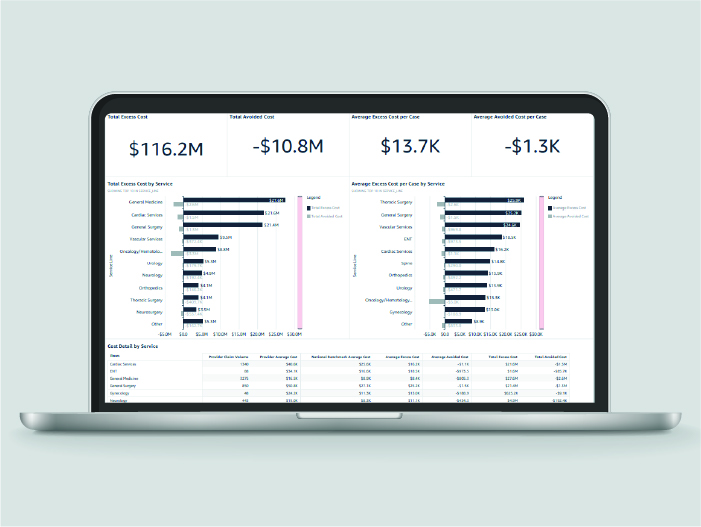Auto logout in seconds.
Continue LogoutWalletHub on Monday released its latest list of the "Best & Worst States for Health Care," with New Hampshire ranking as No. 1.
Methodology
To create the list, WalletHub evaluated all 50 U.S. states and the District of Columbia on 44 metrics across three key dimensions:
- Cost, which includes the cost of medical visits, average monthly insurance premium, and share of high out-of-pocket medical spending
- Access, which includes the quality of public hospital systems, hospital beds per capita, and average ED wait time
- Outcomes, which includes infant mortality rate, maternal mortality rate, and life expectancy
Each metric was graded on a 100-point scale, with a score of 100 representing the best healthcare available at the most reasonable cost. A weighted average across all metrics was used to calculate an overall score and determine a ranking for each state.
The best (and worst) states for healthcare
According to WalletHub, the 10 best states for healthcare were:
1. New Hampshire (Score: 67.49)
2. Rhode Island (Score: 65.58)
3. Minnesota (Score: 64.21)
4. Iowa (Score: 64.19)
5. Massachusetts (Score: 64.15)
6. Maine (Score: 61.67)
7. Colorado (Score: 61.58)
8. North Dakota (Score: 61.48)
9. Wisconsin (Score: 60.93)
10. South Dakota (Score: 60.85)
In comparison, the 10 worst states for healthcare were:
1. Mississippi (Score: 43.15)
2. Alaska (Score: 43.22)
3. Alabama (Score: 44.91)
4. Georgia (Score: 46.13)
5. Texas (Score: 46.55)
6. West Virginia (Score: 46.62)
7. Arkansas (Score: 47.55)
8. Tennessee (Score: 47.77)
9. Kentucky (Score: 47.95)
10. Florida (Score: 48.57)
WalletHub also ranked states on each of the key dimensions:
- Iowa ranked first on cost, and Alaska ranked last.
- North Dakota ranked first on access, and Texas ranked last.
- Massachusetts ranked first on outcomes, and Mississippi ranked last.
In addition, WalletHub highlighted the highest- and lowest-performing states on several metrics:
- New Hampshire had the lowest average monthly insurance premium while West Virginia had the highest.
- The District of Columbia had the most hospital beds per capita while Utah had the fewest.
- Massachusetts had the highest percentage of insured children and adults while Texas had the lowest percentage.
- New Hampshire had the lowest infant mortality rate while Mississippi had the highest.
Advisory Board's CLINICAL QUALITY-RELATED resources
- UNC Health: The care variation reduction story you need to hear
- Is clinical quality declining? A look at the data — and what you can do.
- 4 common pitfalls in care standardization — and how to overcome them
- How top hospitals drive real-time progress on mortality reduction
- Resource library: Reducing unwarranted care variation
- 4 ways to 'fire-proof' your quality efforts
Commentary
To help people better anticipate changes to their healthcare, WalletHub spoke to several experts about major issues facing healthcare in 2025, as well as important steps people can take to minimize health-related costs.
According to Nancy Chun Feng, a professor of accounting at Suffolk University's Sawyer Business School, some key healthcare issues in 2025 are "rising costs, workforce shortages, and disparities in access to care based on geography and income."
"Many individuals continue to face high out-of-pocket expenses and limited transparency in healthcare pricing," Chun Feng said. "There is also growing demand for better coordination of care, especially for those with chronic conditions."
Separately, Michael French, practitioner in residence at the University of New Haven's School of Health Sciences, said that employee burnout, cybersecurity concerns, and generative AI being used for medical care are all issues that are impacting the healthcare industry.
"Burnout itself is a medical concern," French said. "We ought to consider what it means to have a system that causes medical issues for those who would otherwise provide care."
When it comes to minimizing health-related costs, Aleta Ostlund, who is part of the College of Health and Human Services at California State University, Long Beach, said it's important to "know your plan and your network."
"By understanding the deductible, the co-insurance and the out of pocket, individuals can budget out their worst-case scenario each year," Ostlund said. "People should be taking advantage of these free preventative screenings and getting a physical every year."
Aside from being aware of your insurance plan and how to use it, French recommends people try to stay healthy.
"Try to avoid behaviors that increase morbidity and mortality in excess (smoking, drinking, etc.), eat healthily (omega-3 and legumes), exercise regularly (gardening, walking, triathlons, etc.), and be social," French said. "There is nothing shocking there, we know this. What is best in those categories is going to be on an individual basis."
(McCann, WalletHub, 7/28)
Don't miss out on the latest Advisory Board insights
Create your free account to access 1 resource, including the latest research and webinars.
Want access without creating an account?
You have 1 free members-only resource remaining this month.
1 free members-only resources remaining
1 free members-only resources remaining
You've reached your limit of free insights
Become a member to access all of Advisory Board's resources, events, and experts
Never miss out on the latest innovative health care content tailored to you.
Benefits include:
You've reached your limit of free insights
Become a member to access all of Advisory Board's resources, events, and experts
Never miss out on the latest innovative health care content tailored to you.
Benefits include:
This content is available through your Curated Research partnership with Advisory Board. Click on ‘view this resource’ to read the full piece
Email ask@advisory.com to learn more
Click on ‘Become a Member’ to learn about the benefits of a Full-Access partnership with Advisory Board
Never miss out on the latest innovative health care content tailored to you.
Benefits Include:
This is for members only. Learn more.
Click on ‘Become a Member’ to learn about the benefits of a Full-Access partnership with Advisory Board
Never miss out on the latest innovative health care content tailored to you.

